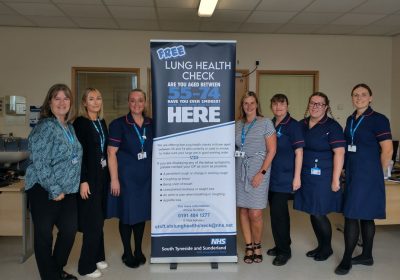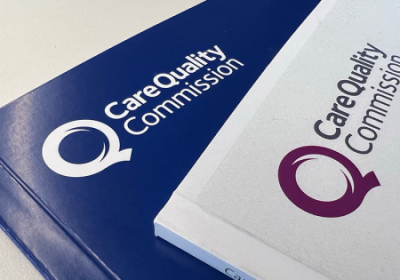More than 130,000 people across the region live with COPD – a serious lung disease which makes it harder to breathe.
It includes illness such as emphysema and chronic bronchitis which can cause permanent damage to the lungs and airways.
People with COPD often have a long-lasting cough, feel short of breath, wheeze and get tired easily – which can all be worse during the cold winter months.
Dr Catherine Monaghan, a leading respiratory consultant and medical director for NHS North East and North Cumbria Integrated Care Board (ICB), said: “Winter can be tough on your lungs especially when you have COPD.
“Cold air and winter viruses can make breathing much more difficult, but taking just three simple steps to protect your lungs could help you breathe easier, manage your symptoms, and avoid any unnecessary trips to hospital.”
People living with COPD are being encouraged to:
• Stop smoking
• Get their winter vaccinations
• Use their inhalers the right way, every day
“Stopping smoking is one of the best things you can do for your health,” added Dr Monaghan.
“Smoking damages your lungs, makes breathing more difficult, and can reduce how well your medicines work. You can talk to your GP or COPD nurse about free support available to help you quit.
“It’s also important to get your flu, RSV, and COVID-19 vaccines, if you’re eligible. Cold weather can weaken your immune system and make it harder to fight winter viruses and using your inhalers, in the right way every day, helps to keep your airways open, control your symptoms, and prevent COPD flare-ups.
“Taking these three simple steps now will help you breathe easier and stay well in the colder months ahead. If you need further advice or support, to help manage COPD symptoms, speak to your GP or COPD nurse for more ways to keep your lungs healthy this winter.”
1. Stop smoking
If you have COPD, quitting smoking is the best thing you can do for your lungs. It helps you breathe more easily, reduces coughing, and cuts the risk of flare-ups. Free NHS support is available.
Ask your GP, nurse, or pharmacist for advice, or visit NHS Stop Smoking.
2. Get your winter vaccines
Winter viruses like flu, RSV and COVID-19 can make COPD symptoms worse. Protect yourself by getting vaccinated.
Ask your GP practice or local pharmacist about free winter vaccines (if eligible) including:
• Flu
• COVID-19
• Pneumococcal
• RSV
Visit NHS Winter Vaccines to find out more.
3. Use your inhalers correctly
Using your inhalers the right way, every day, helps keep your airways open and symptoms under control.
• Use them even when you feel well
• Keep a spare inhaler at home
• If you’re unsure about your technique, ask your GP, nurse or pharmacist to show you
For more advice select your inhaler from the list and find step-by-step guidance at RightBreathe.

Your annual COPD review
Your GP practice may invite you for an annual COPD review. This is your chance to:
• Check your medication and inhaler technique
• Talk about your symptoms and what to do if they get worse
• Get support to stop smoking
• Make sure you’re up to date with your vaccines
A short chat can make a big difference to your health.
Your COPD winter checklist
✔ Have you had your winter vaccines?
✔ Checked your inhaler technique?
✔ Got enough inhalers and medicines at home?
✔ Stopped smoking or asked for help to quit?
✔ Know what to do if your symptoms get worse?
✔ Attended your annual COPD review?
Speak to your GP or COPD nurse for more ways to stay healthy this winter.






